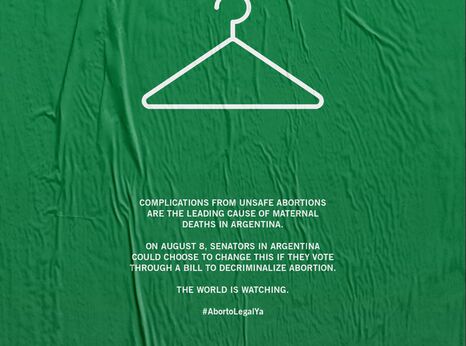Women's access to safe abortion at risk

Important: Please note that there are several targets to this action and due to technical issues, we are not able to include them all in the online action. Please download the full UA and send copies of your appeal letter to all targets.
The Draft Law which Amends and Supplements Act No. 576/2004 Coll. of Laws on Healthcare, Healthcare-related Services, and on Amending and Supplementing Certain Acts As Amended, and which Amends and Supplements Certain Acts (Print no. 154, 19.06.2020), was first tabled in the Slovak Parliament (National Council) in July 2020 by OLANO (Ordinary People and Independent Personalities), the biggest party of the government coalition.
The bill was passed in first reading in August and sent to three different committees for further debate in September. As of 9 September, the Constitutional and Legal Affairs Committee has supported the proposed bill and recommended for the legislation to be approved by parliament. The other two committees (Social Affairs Committee and Health Committee) should deliver their opinion in the upcoming days. The bill is expected to be voted in second reading during the plenary session starting from 16 September. If passed, it will be voted on in a third and final reading.
Abortions are permitted in Slovakia in the first 12 weeks of pregnancy. However, over the last few years, the country has introduced laws and policies to make access to timely and safe and legal abortion services more burdensome. On 18 October 2019, the UN Committee on Economic, Social and Cultural Rights noted that women in the Slovak Republic already face multiple barriers to sexual and reproductive health services, including access to safe abortion and contraceptives. This new bill will create additional barriers to health care and will have a heightened impact on women and girls from rural areas, living in poverty or victims of domestic and sexual violence.
It is not the first time the Slovak Parliament debates retrogressive legislation to obstruct safe access to abortion care. A bill tabled in November 2019 attempted to force people seeking an abortion to view an ultrasound scan of the embryo or foetus. The proposed measure was not justified by medical reasons and would have violated the person’s privacy, personal integrity, autonomy in decision-making about health care. Following national and international outrage the bill did not get the required votes and was dismissed.
In line with the international human rights law and standards, everyone should be able to make their own decisions about their bodies and have access to sexual and reproductive health services including safe abortion.